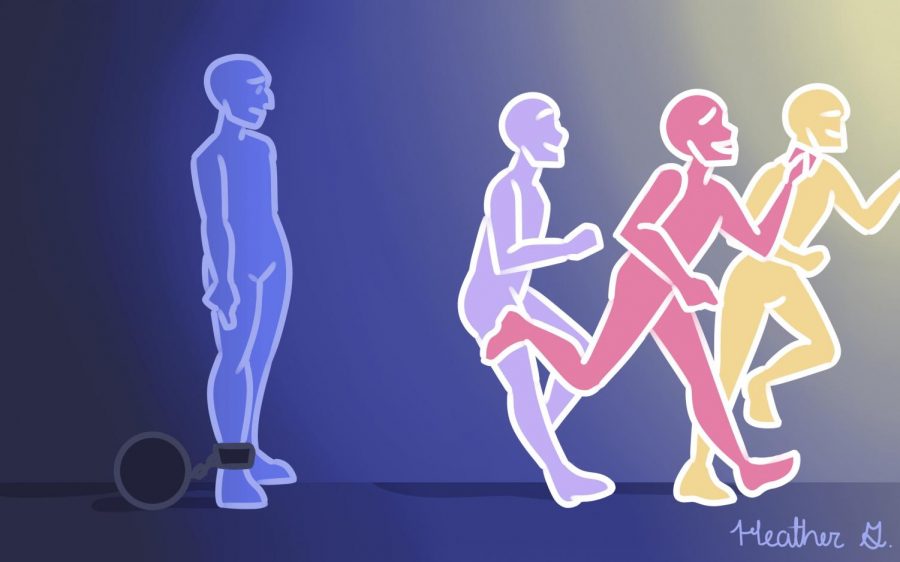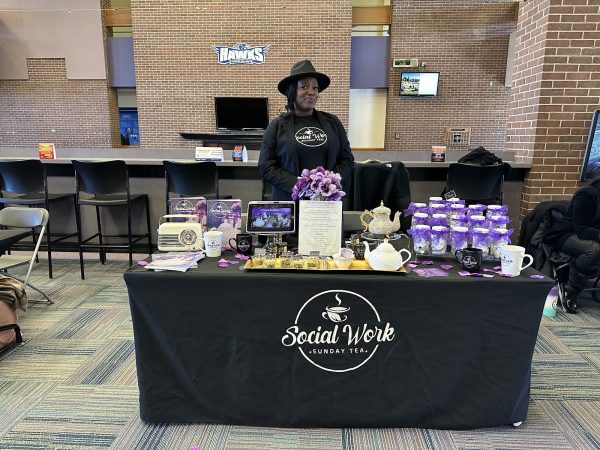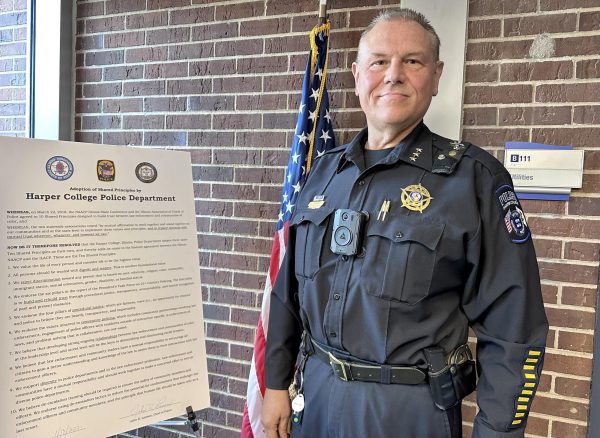How to start feeling “unstuck”
Harper’s Hawks Care Resource Center and Counseling Services experience a surge of appointments entering the winter season, according to the head of counseling service, David Antonides. Antonides upholds that many students come in with the concern of “being stuck” in a rut and express their interest in getting “unstuck.”
But Antonides explained that there are several strategies students can utilize in order to improve their mental health and get “unstuck.”
For starters, Antonides suggested using WellTrack, a self-paced mental health app made free by Harper.
“There are a bunch of self-help activities on there to help with things like anxiety or depression, or procrastination,” Antonides said. “There’s even a feelings log and some other tools that students can use to track their mood.”
The self-guided aspect of WellTrack appeals to students uninterested or unable to commit to appointments.
“The fact that it’s more of a self-help thing could be another way that a student could get some support without necessarily having to come in and talk to a counselor,” Antonides said.
In addition to WellTrack, Antonides recommended journaling as another self-help resource.
“It sounds pretty basic, but I think taking the space to reflect and sometimes journaling can be really helpful,” Antonides said. “I’m not a big journal-er myself, but I think there’s certain times in life that it can be really helpful.”
He believes that both WellTrack and journaling provide a substantial resource as logs of what you’re doing differently.
However, Antonides recognized that these strategies might not work for everyone. In that case, the next step is to find support.
Antonides affirms that help can come from anyone in the process of self-understanding, whether they are a friend, a mentor, an advisor or a counselor. As a professional counselor, Antonides understands the need to have this kind of support.
Antonides detailed what a first appointment might look like for those that are new to counseling.
“That first meeting is really just an intake, a chance to get to know each other and talk about stuff,” Antonides said. “A lot of times, we don’t really have a plan until we’ve talked with the student and answered any questions they might have about counseling.”
Additionally, Antonides assured that if support beyond counseling is needed, Hawks Care Resources Center and Counseling Services has resources to offer.
“I would say that it’s ‘counseling’ and not ‘therapy,’” Antonides said. “If we have students that really need something a little more serious… We will help them find a referral, a community resource outside of Harper.”
“We really try to work with the student to find out what they need and what kind of support,” Antonides said. “If you came in and had a sense of where you wanted to be and just felt like you were having trouble getting there…That’s kind of what I would do just in general for people coming in with that general ‘stuck.’”
Questions to Get “Unstuck”
To supplement the previous resources, Antonides offers seven questions to ask oneself and assess their feelings as an additional method to feel “unstuck.”
Question 1: What do you believe is standing in the way of doing what you want to do?
How it helps: “What’s interesting is a lot of times the things that are standing in our way are also things that are helping us, sort of, cope in the present,” Antonides said.
Question 2: How is that thing that’s standing in your way helping?
How it helps: Antonides followed the sentiment of the previous question. “Sometimes the things we think we want to get rid of are also things that have a positive function in our life,” Antonides said.
Question 3: What would be a more helpful way to accomplish what you’re doing now?
How it helps: For many, the answer to this question redefines an entirely new routine.
“With some time management, some structure in your day, [allows] time to spend with friends, time to relax, time to sleep a little longer if that’s what you need to do,” Antonides said. “So, the time management piece would maybe be a helpful way… that might help you get a little unstuck.”
Question 4: Can you describe what you’re doing differently now that that change has been made?
How it helps: “Another way that you can also get unstuck is to use your imagination,” Antonides said. “The question would be more like can you visualize that you already made this change in your life and then describe what you’re doing differently now that that change has been made?”
Antonides affirmed that doing so provides insight into what is causing that sense of “stuck” and to construct goals by placing the focus on what that change looks like.
Question 5: Can you go back and look at what you’re doing now to see that there are differences there?
How it helps: “So, now, [you’re] thinking about what you’ve visualized and how that’s different,” Antonides said. “That, again, would be giving you insight into things that you’re doing now that are keeping you stuck.”
Question 6: What problems do you notice have been created as a result of the change?
How it helps: “A lot of times it’s so clear to a person what those goals are but it’s not always clear how problems are created as a result of those goals,” Antonides said.
“Asking that question can also give some insight to reasons that you may be unaware… factors that are affecting the change or kind of holding you back from making this change,” Antonides said. “That’s important because a lot of times when we’re not aware of those things, we may not be ready or willing to cope with those challenges in a way that will allow for the change.”
Question 7: Once you’re aware of what that change looks like: Are these sacrifices sustainable? Can you do it without being more stressed?
How it helps: “If you were aware of [what you needed to change] and you’re making a decision to do something different, then I think that at least takes away a bit of that feeling of being stuck because then you’re realizing that you have control over that choice,” Antonides said. “You know what you’re giving up, you know how you’re benefiting from that.”
“If it’s still something that you want to shoot for, then, just being able to know the unconscious factors that are affecting your decision and also your ability to change is helpful in pushing yourself through that change and seeing where you’re stuck,” Antonides said.











